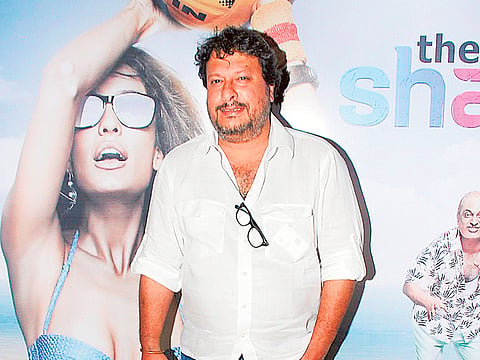Indian film industry could do with UAE investor help
Leading film-maker says such support can also be extended to whole industry

Dubai: Dubai and Abu Dhabi have rolled out red carpets for star-studded premieres and as locations for any number of potboilers churned out by the Bollywood factory. Now, a top Indian film-maker, Tigmanshu Dhulia, wants the UAE to be even more generous in their exposure to Indian films.
Dhulia — the director of the Saheb Biwi Aur Gangster series and Paan Singh Tomar, and who also acted in Gangs of Wasseypur — wants UAE based investors to come on board with sizeable funding to “promote Indian cinema”.
“It’s a myth that the Indian film industry has sufficient resources as there are only three or four major studios — such as Viacom, Eros, Balaji, etc,” said Dhulia. “We need a good platform to meet and discuss projects with potential investors.
“India has so many award functions that it has lost the true essence ... but it’s new in the UAE. With the Arab-Indo Bollywood Awards, we can look at building synergies between India and the GCC, particularly the UAE. It’s the first season and the initial response towards AIBA is positive. We can see a growing number of companies who want to be associated with it and Indian cinema.”
Incidentally, last year’s small-budget Indian movie, Lunchbox, had a Dubai-based investor listed among its executive producers.
The director, who is the AIBA jury chairperson, declined to say whether he has made any initial approaches with potential fund raisers.
But he is emphatic that Indian cinema is not in as healthy a situation as is made out to be. Despite the multiple Rs1 billion (Dh58 million) plus box-office grosses — the standard Bollywood industry measure defining a film’s theatrical success — attained by some of the recent releases, Dhulia said a “correction phase” is on. “2014 was not a good year ... box-office revenues cover the cost of production. Initially, satellite revenues were profitable, but that has gone down drastically. Budgets for actors have gone down. They are charging much less than what they used to.
“In addition, piracy has killed any kind of profits that mid-sized films were making.”
Given all these risk factors, how would look to convince investors from the UAE to take exposures in Indian cinema? “Personally, any kind of collaboration,” said Dhulia, who is working on ‘Yara’ and ‘Madam X’.
“Also, it will depend on the percentage of funding an investor is ready to take on. We want investors not only for film funding but also for the film exhibitions and more theatres.
“TV in India is changing drastically too; with the DTH (direct-to-home) system it will soon become paid channels like in the US and other countries. TV content too will see change.
“We would invite investors for all our current and future projects. I, personally, would like to discuss multiple projects with investors.”



